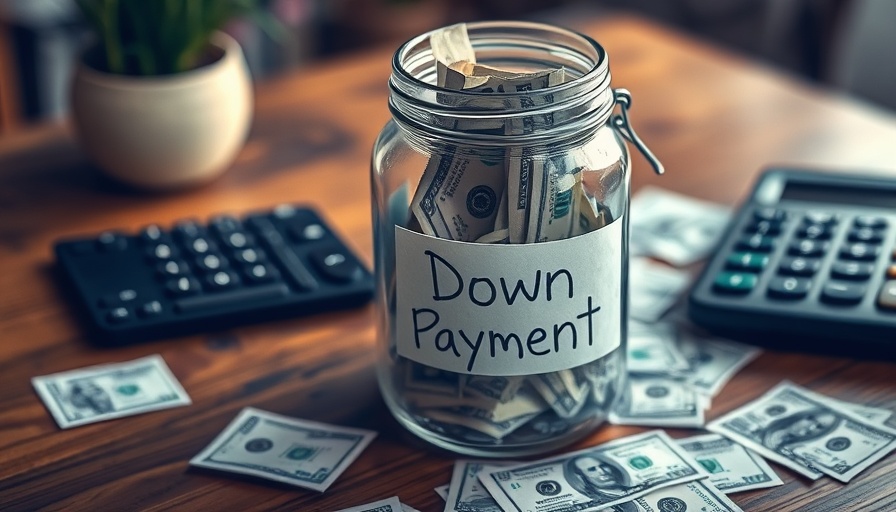
Understanding Down Payments: The Foundation of Home Buying
The journey to home ownership often begins with a pivotal question: how much should you put down? While the traditional advice is to aim for a 20% down payment, the reality is that many homebuyers, especially first-time buyers, are exploring more flexible options. According to the National Association of REALTORS®, around 91% of first-time buyers finance their home purchases, indicating a clear trend towards varying down payment amounts.
The Mechanics of Down Payments: What You Need to Know
A down payment signifies the initial payment made towards purchasing a property and establishes equity in the home. Lowering the amount financed decreases the lender's risk (reflected in the loan-to-value ratio or LTV) and can qualify you for better mortgage terms, such as avoiding private mortgage insurance (PMI). A down payment not only makes home ownership possible but also influences monthly mortgage payments significantly.
Advantages of Large Down Payments: Weighing the Benefits
There are numerous advantages associated with making a larger down payment. Primarily, it reduces the mortgage principal, leading to lower monthly payments that ease financial strain. Here’s an illustration: for a $300,000 loan at an interest rate of 6.5%, increasing your down payment by just $1,000 could shave off approximately $7 from your monthly payment. This alleviates pressure on your budget and grants you more financial flexibility.
Additionally, a larger down payment can improve your chances of loan approval and potentially secure a lower interest rate, yielding substantial savings over time. Lenders view borrowers who can make significant upfront payments as lower risks, which could lead to more favorable mortgage terms.
Consider the Downsides: Risk Factors of Large Down Payments
While making a larger down payment has clear benefits, it's not without drawbacks. A substantial upfront investment often means less liquidity for other investments or emergencies. Homeownership is only one asset among many, and tying up your cash may hinder your financial flexibility in unpredictable situations.
Moreover, being overly reliant on property equity might not be prudent, especially in fluctuating real estate markets. If property values decline, you could find yourself with significant equity loss without a safety net. Therefore, striking a balance is imperative.
Partial Payments: When It Makes Sense to Downsize Your Investment
In today’s competitive real estate market, where the inventory of homes for sale can be limited, buyers sometimes opt for smaller down payments to conserve cash. This helps secure homes but requires diligent budgeting. In cities like Seattle, where real estate prices soar, many first-time buyers are leaning towards down payments as low as 3%. This still allows them to enter the market while keeping savings available for unforeseen repairs and living expenses.
Real Estate Trends: Adapt Your Strategy Based on Market Conditions
The decision on how much to put down may also depend on broader economic conditions. Interest rates, market availability, and economic stability play a critical role in shaping down payment strategies. As potential buyers, it's vital to stay informed about current market trends through real estate apps and websites like Zillow, Redfin, or Trulia, which provide insights into home values, neighborhood data, and much more.
Actionable Insights: Making Informed Choices About Down Payments
Before deciding on your down payment, assess your long-term housing goals and financial health. Consulting a knowledgeable real estate agent can provide personalized advice tailored to your circumstances. Explore various financing options to understand which down payment level aligns with your housing strategy. The array of current real estate listings, from luxury homes to multifamily units, offers something for every budget. Ensure you leverage these resources to find the best fit for you.
Conclusion: Crafting Your Path to Homeownership
Ultimately, whether to make a large or small down payment depends on individual financial circumstances, market conditions, and personal aspirations. Carefully weighing the pros and cons can help you navigate this complex decision. The goal is to ensure that your investment enhances your financial wellbeing and leads you to your dream home.
 Add Row
Add Row  Add
Add 



Write A Comment